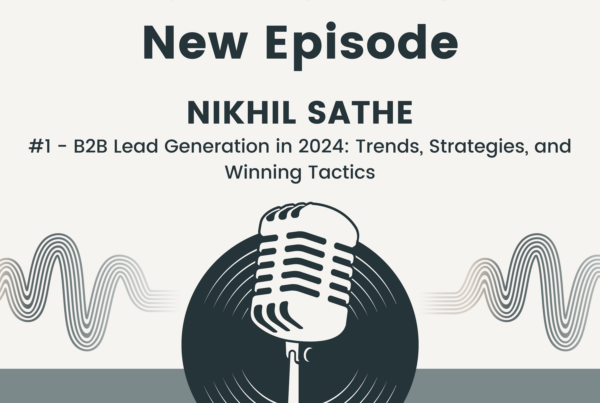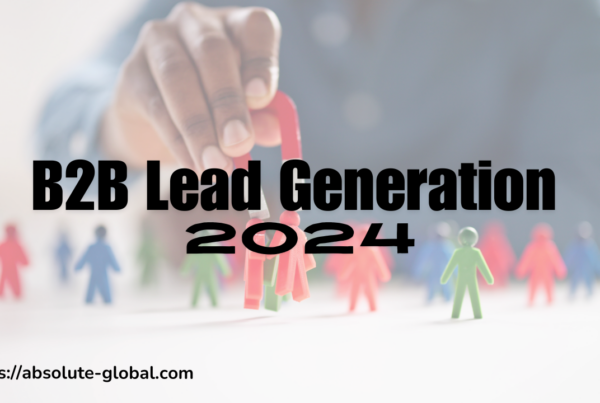Table of Contents
Content marketing for B2B is the lifeline of modern B2B strategies. Unlike traditional marketing methods, content marketing focuses on creating valuable, relevant, and consistent content that attracts and retains a clearly defined audience. For B2B companies, where decisions involve long sales cycles and multiple stakeholders, content marketing plays a pivotal role in building trust and fostering relationships. Let’s dive deep into why content marketing is vital for B2B businesses and how it can drive growth.
1. What is Content Marketing for B2B?
Content marketing for B2B involves crafting content tailored to address the unique needs of businesses rather than individual consumers. It’s not just about selling a product or service; it’s about educating and guiding decision-makers through their buying journey.
Key Components of B2B Content Marketing:
- Educational Content: Provides solutions to industry pain points.
- Thought Leadership: Establishes the brand as an authority in its niche.
- Relationship Building: Focuses on long-term partnerships over quick sales.
For instance:
- Example of B2B Content: A software company offering a free whitepaper on how to improve operational efficiency for small businesses.
2. The Role of Content Marketing in B2B Success
a. Building Brand Awareness
In the crowded B2B marketplace, standing out is critical. By consistently delivering high-quality content, businesses can increase visibility and make a lasting impression.
b. Educating the Target Audience
B2B buyers rely heavily on research before making a decision. Informative content like blogs, case studies, and webinars can educate prospects about industry trends, challenges, and solutions.
c. Driving Lead Generation
Effective content captures leads by providing value in exchange for contact information. For example:
- HTML Example:
<ul>
<li>eBooks that require email sign-ups</li>
<li>Webinars with registration forms</li>
<li>Downloadable templates or tools</li>
</ul>
d. Nurturing Relationships
Content that aligns with the different stages of the sales funnel helps nurture prospects. A mix of awareness, consideration, and decision-stage content ensures continuous engagement.
3. Types of B2B Content That Deliver Results
To succeed in content marketing, B2B companies must diversify their content formats.
a. Blogs
- Ideal for sharing industry insights and answering common queries.
- SEO Advantage: Incorporates long-tail keywords to attract search traffic.
b. Case Studies
- Real-life examples of how your business solves problems for clients.
- Builds credibility and trust with prospects.
c. Videos and Webinars
- Engaging formats to explain complex ideas.
- Visual content like explainer videos or live Q&A sessions can humanize your brand.
d. Whitepapers and eBooks
- In-depth resources for serious buyers.
- Positioned as authoritative guides to industry challenges.
e. Infographics
- Simplifies complex data with visuals.
- Highly shareable, boosting your brand’s reach.
4. How to Create an Effective B2B Content Marketing Strategy
a. Understand Your Audience
Knowing your audience is the first step in creating impactful content. Identify:
- Pain points
- Decision-making roles
- Preferred content formats
b. Set Clear Goals
Define measurable objectives like:
- Increasing website traffic by X%
- Generating Y qualified leads per month
c. Leverage SEO
Optimize content with relevant keywords like “B2B content marketing” and “importance of content marketing for B2B.” Include internal links to related pages and ensure your content is mobile-friendly.
d. Distribute Strategically
Use multiple channels to share your content:
- Email newsletters
- LinkedIn posts
- Industry forums
e. Measure Results
Track metrics such as:
- Time spent on page
- Conversion rates from gated content
- Social media shares
5. Challenges in B2B Content Marketing
a. Long Sales Cycles
Unlike B2C, B2B buyers take time to evaluate. Consistent and relevant content is essential to keep them engaged.
b. Limited Resources
Smaller B2B companies often struggle with content creation. Outsourcing or repurposing existing content can help.
c. Measuring ROI
Tracking the direct impact of content on revenue can be tricky. Use tools like Google Analytics and CRM platforms to bridge the gap.
d. Keeping Content Fresh
Regular updates to existing content maintain relevance and improve SEO rankings.
6. The Future of Content Marketing for B2B
a. AI and Automation
Artificial intelligence is revolutionizing content marketing. Tools like ChatGPT streamline content creation, saving time and resources.
b. Interactive Content
Quizzes, polls, and interactive infographics engage audiences more effectively than static content.
c. Personalization
Tailored content increases engagement. Leverage customer data to create personalized email campaigns and recommendations.
d. Video Content
Videos are becoming a must-have in B2B strategies. Live streaming, product demos, and testimonials make complex concepts easy to grasp.
Conclusion
Content marketing for B2B isn’t just a buzzword—it’s a necessity for B2B businesses looking to thrive in today’s competitive landscape. From building brand awareness to nurturing leads, its benefits are far-reaching. By creating valuable and engaging content, businesses can build trust, foster long-term relationships, and achieve sustainable growth.
FAQs
1. What is content marketing for B2B, and why is it essential for B2B?
Content marketing involves creating valuable content to attract and engage B2B audiences. It’s crucial because it builds trust, educates prospects, and drives lead generation.
2. How does B2B content marketing differ from B2C?
B2B focuses on long-term relationships and detailed decision-making, while B2C often targets quick, emotion-driven purchases.
3. What content works best for B2B companies?
Case studies, blogs, whitepapers, webinars, and videos resonate well with B2B audiences.
4. How can small B2B businesses implement content marketing effectively?
Start small with blogs and social media. Use free tools like Canva for visuals and optimize content for SEO.
5. What are the latest trends in content marketing for B2B?
Interactive content, AI-driven personalization, and video marketing are shaping the future of B2B strategies.
Read More : What is the Difference Between B2B & B2C? A Comprehensive Guide
Comprehensive guides and best practices for content marketing
Tips for creating a winning content marketing strategy.
Learn from case studies and data-driven insights.
Tactical strategies and SEO integration for B2B content marketing.




